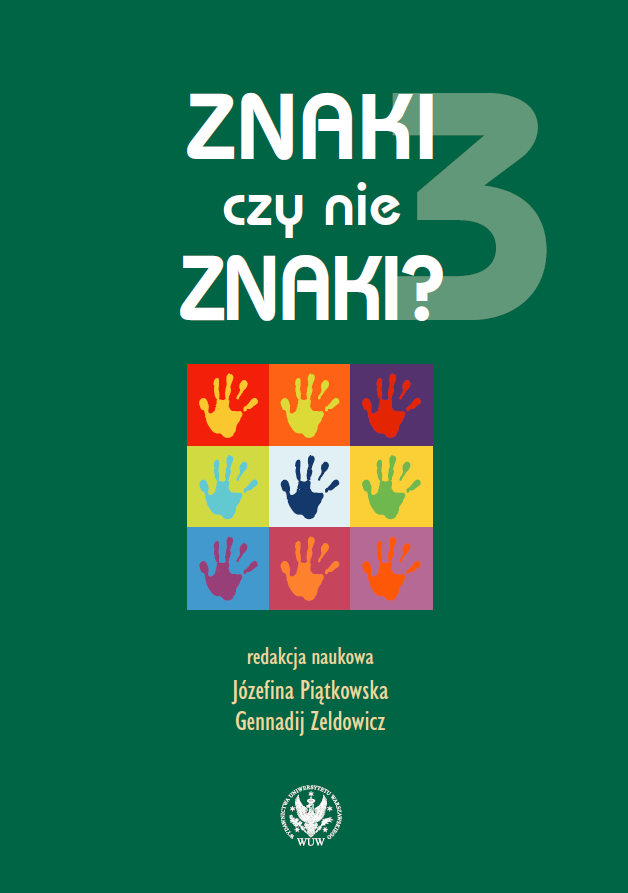On limitless diversity of functional types of utterance
On limitless diversity of functional types of utterance
Author(s): Andrzej Bogusławski
Subject(s): Semiotics / Semiology, Theoretical Linguistics, Applied Linguistics, Studies of Literature, Polish Literature, Other Language Literature, Philology
Published by: Wydawnictwa Uniwersytetu Warszawskiego
Keywords: utterance; type of utterance; subtype of utterance; finite list; necessary condition; formal; nomological
Summary/Abstract: The author adopts the concept of “functional type of utterance” where the relevant set is based on features other than coincidental co-occurrence of utterances (as, e.g., used by someone at a certain time) or their including a specified expression (specified expressions). The concept subsumes traditional kinds of utterance such as declaratives vs. hypothetical statements, questions, promises, etc., but also, e.g., utterances where vocatives addressed to the recipient(s) are used with varying frequency (which gives rise to the corresponding subtypes of utterance). It is claimed that the existence of a closed and at the same time objectively exhaustive list of functional types of utterance depends on two alternative necessary conditions which are not and will never be satisfied. One of the conditions has a formal or mathematical character. It amounts to the presence of some contradiction in the conjunction of the following constituents: (i) the claim of non-existence of such an exhaustive objective list of types, (ii) any element of knowledge. The other necessary condition belongs to the domain of nomological/natural sciences. It would consist in our knowledge of organisms and their factual (albeit contingent) constraint which necessitates production of a finite number of functional types of utterance, on the pattern of what is proper to apprehension of sounds by creatures belonging to different species, e.g., humans or bats (as limited to a certain, varying, frequency of oscillation in the air environment). The author submits a formalized schema of the reasoning where a hierarchy of functional types and subtypes of different degrees is assumed.
Book: Znaki czy nie znaki? Tom 3. Struktura i semantyka utworów lirycznych
- Page Range: 13-21
- Page Count: 9
- Publication Year: 2020
- Language: English, Russian, Polish
- Content File-PDF

